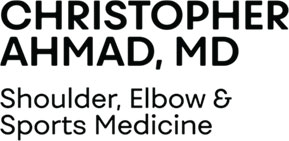“Modern elite athletes optimize everything in their life, including how they respond to injury” — Dr. Christopher Ahmad.
Whether in high school, college, or professional leagues, many athletes emerge from injuries not just as survivors but as stronger, faster, and more powerful players. This might sound counterintuitive — how could an injury that sidelines a player lead to them throwing harder or playing better? Yet, repeatedly, we’ve seen pitchers return from UCL injuries and Tommy John Surgery with increased velocity and improved performance. The secret lies not just in the surgery but in the meticulous approach to recovery, where nutrition plays a pivotal role.
Evolution — In the 1970s, nutrition was not the secret weapon that many pro athletes use today. Still, George Steinbrenner wanted his players to have an edge and invited a nutritionist to help his club. On the first day, the nutritionist entered a disinterested Yankee clubhouse. The difficult piece of the puzzle was how to address some of the most iconic athletes in the world of sports on a topic they had never shown much interest in: nutrition.
The strategy deployed? Engage them immediately. “What’s the most important meal of the day?” the nutritionist asked, voice tinged with eagerness. The players diverted their gaze, avoiding eye contact. Silence loomed. Just when it seemed the question would go unanswered, Craig Nettles, the Gold Glove-winning third baseman, raised his hand: “Breakfast is the most important.”
“And why is that” the nutritionist shot back, seizing the moment.
Nettles quipped “Because if I ain’t home by breakfast, my wife gets pissed.”
That tension-breaking moment was recounted to me by long-time Yankee athletic trainer Gene Monahan who was in the meeting. Nettles was known for his wit. Tommy John commented on Nettles for his profound sense of humor “Craig Nettles was great with the one-liners, the zingers…He was the team’s pressure valve…Every clubhouse needs a guy like that, the guy with the acerbic wit who can take your mind off a bad situation.”
Let’s fast forward to my start as Head Team Physician for the Yankees. I observed legends like Derek Jeter, who would meticulously prepare a peanut butter and jelly sandwich 30 minutes before game time to ensure
he was fueled for performance. As a Tommy John surgeon, it got me thinking: what fuel would you want your best players to have before one of their most prominent physical contests — elbow surgery?
Nutrition isn’t just a casual consideration — it’s a competitive edge, whether you’re on the field, in the operating room, or a high-stakes business meeting. For athletes recovering from UCL injuries and Tommy John Surgery, understanding and optimizing their nutrition can make the difference between a slow, uncertain recovery and a triumphant return to peak performance.
Understanding the Challenge: UCL Injuries and Tommy John Surgery
Ulnar collateral ligament (UCL) injuries are critical for baseball players, particularly pitchers. The repetitive stress of throwing can deteriorate this crucial ligament, often leading to Tommy John Surgery. While the surgery is a critical step toward recovery, the rehabilitation process is where true performance gains can be made, with nutrition playing a pivotal role.
The Role of Nutritional Supplementation in Recovery
Recovery from UCL surgery requires a holistic approach, balancing rest, physical therapy, and optimal nutrition. Nutritional supplementation, particularly with amino acids, can accelerate recovery, enhance muscle repair, and improve overall outcomes post-surgery.
1. Essential Amino Acids (EAAs) for Muscle Repair:
Amino acids are the building blocks of protein and are essential for muscle protein synthesis and repair. Essential amino acids (EAAs) like leucine, isoleucine, and valine are essential because they must be obtained through diet or supplementation. Studies have shown that EAA supplementation can mitigate muscle wasting and promote the recovery of functional mobility post-surgery.
2. Arginine and Glutamine for Enhanced Healing:
Arginine and glutamine are conditionally essential amino acids that become particularly important during times of stress, such as after surgery. Arginine promotes collagen synthesis and improves blood flow, aiding in wound healing, while glutamine supports immune function and helps reduce muscle wasting. These amino acids have been shown to enhance postoperative recovery, making them valuable supplements for athletes recovering from Tommy John Surgery.
3. Beta-Hydroxy Beta-Methylbutyrate (HMB) for Preserving Muscle Mass:
HMB, a metabolite of leucine, has been extensively studied for its ability to preserve muscle mass and enhance recovery. For athletes immobilized during the initial stages of post-surgery recovery, HMB supplementation can prevent the rapid loss of lean body mass, which is crucial for maintaining strength and facilitating a quicker return to activity.
4. Creatine Monohydrate for Muscle Strength and Bone Health:
Creatine monohydrate is known for increasing muscle strength and enhancing performance but also plays a role in bone health. This makes it a beneficial supplement for athletes recovering from orthopedic surgeries like Tommy John, where muscle and bone recovery are critical.
Integrating Nutritional Strategies into Recovery Plans
Incorporating these supplements into an athlete’s recovery plan should be tailored to their specific needs, considering factors like their nutritional status, the extent of muscle atrophy, and overall health. Collaborating with a nutritionist or dietitian can help create a personalized supplementation plan that optimizes recovery.
Conclusion
While Tommy John Surgery is a well-established procedure for addressing UCL injuries, the challenge — and opportunity — lies in the recovery process. Nutritional supplementation, particularly amino acids, offers a powerful means to enhance healing, preserve muscle mass, and help athletes return to the field stronger and more resilient.
For those navigating the challenges of UCL injuries and Tommy John surgery, understanding the power of nutrition can be a game-changer in their journey back to peak performance.







